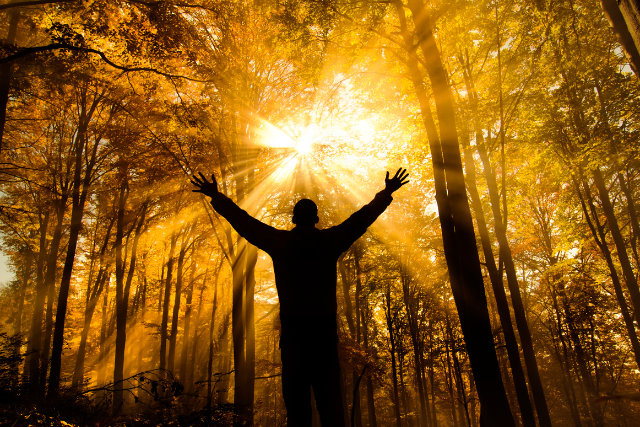The Role of Senior Volunteers in Disaster Relief Efforts: Wisdom in Action

When disaster strikes—be it a hurricane, wildfire, flood, or public health crisis—the immediate response often involves first responders, emergency medical teams, and national guard units. Yet, an often overlooked yet powerful force in disaster relief is the contribution of senior volunteers.
While many people associate disaster relief with physically demanding work, the reality is that effective disaster response requires a wide range of skills, from administrative support and logistics to emotional care and long-term community rebuilding. Seniors, with their wealth of experience, resilience, and dedication, bring an invaluable presence to these efforts.
In this article, we’ll explore the impact, benefits, and unique value of senior volunteers in disaster relief, comparing their roles with other volunteer groups, and highlighting how age is not a barrier but an advantage when it comes to service.
Why Senior Volunteers Matter in Disaster Relief
1. Lifelong Skills and Experience
Senior volunteers often come from diverse professional backgrounds—healthcare, education, management, military, and more. This range of experience makes them ideal candidates for:
- Organizing relief logistics
- Offering first aid and counseling
- Coordinating volunteer teams
- Managing shelter operations
They’ve been through life’s ups and downs and are often emotionally steady in times of crisis.
2. Strong Work Ethic and Commitment
Retired individuals have the time, availability, and motivation to give back. Many seniors report volunteering as a way to stay active, purposeful, and socially connected, which means they are more likely to be consistent and dependable team members during extended relief efforts.
3. Compassion and Patience
Whether offering comfort to disaster victims, helping displaced families, or answering phones at emergency hotlines, seniors often bring a level of empathy and calm that younger volunteers may still be developing.
Key Roles Senior Volunteers Play in Disaster Relief
Senior volunteers can contribute in many areas, depending on their physical abilities and backgrounds. Here’s a breakdown of common roles:
A. Shelter Management and Support
Senior volunteers often assist with:
- Checking in displaced individuals
- Preparing and distributing meals
- Managing donations
- Offering companionship and comfort
B. Medical and Mental Health Support
Retired nurses, doctors, or mental health professionals may volunteer through organizations like the Medical Reserve Corps or Red Cross, offering:
- Basic triage
- Health screenings
- Mental health first aid
- Medication coordination
C. Administrative and Logistical Support
Behind-the-scenes operations are vital to relief efforts. Seniors help with:
- Data entry and documentation
- Volunteer coordination
- Communication with affected families
- Liaising with community organizations
D. Community Outreach and Education
Senior volunteers often take part in disaster preparedness programs, helping educate others on:
- Emergency planning
- Evacuation procedures
- Resilience training
- Building disaster kits
Comparison: Senior Volunteers vs. Younger Volunteers
| Aspect | Senior Volunteers | Younger Volunteers |
|---|---|---|
| Experience | Decades of life/work experience | Limited, still learning |
| Availability | More flexible schedules (often retired) | Restricted by jobs, school |
| Physical Stamina | May have mobility/health limitations | Typically more active |
| Emotional Resilience | Calm under pressure, patient | May be emotionally impacted more easily |
| Tech Skills | May need support with digital tools | Often tech-savvy |
| Leadership Potential | Strong in guidance and mentorship | More likely to follow direction |
Conclusion: Both groups are valuable. Senior volunteers often complement younger volunteers with their knowledge and steadiness, creating a multigenerational response team that’s stronger together.
Organizations That Engage Senior Disaster Volunteers
Many respected organizations actively recruit and rely on senior volunteers, including:
1. American Red Cross
Offers multiple roles from sheltering and logistics to disaster mental health and communications.
2. FEMA’s Community Emergency Response Teams (CERT)
Trains local residents, including seniors, in basic disaster response skills like fire safety, light search and rescue, and disaster medical operations.
3. RSVP (Retired & Senior Volunteer Program)
Part of AmeriCorps Seniors, RSVP engages adults aged 55+ in a wide range of disaster preparedness and recovery efforts.
4. Team Rubicon
While originally composed of military veterans, this organization now includes senior volunteers in logistics, operations, and community rebuilding.
Health and Safety Considerations for Senior Volunteers
While senior volunteers bring exceptional value, there are considerations to ensure their well-being:
- Physical Limits: Assign roles based on ability. Many seniors thrive in roles that involve communication, organization, or caregiving.
- Training and Support: Provide clear safety guidelines and role-specific training.
- Mental Health: Disaster zones can be emotionally taxing. Access to counseling and peer support is important.
- Vaccinations and Medical Clearance: In health crises (e.g., pandemics), seniors should consult their doctors before volunteering on-site.
Real-Life Examples of Seniors Making a Difference
Wildfire Response in California
After the Paradise wildfires, dozens of senior volunteers coordinated shelters, distributed donations, and provided grief support. Some had survived disasters themselves and offered empathetic counseling to displaced families.
Hurricane Katrina
Many seniors participated in long-term rebuilding efforts in New Orleans. Their backgrounds in construction, finance, or community organizing helped guide planning and resource distribution for years after the initial disaster.
COVID-19 Pandemic
Senior retired medical professionals came out of retirement to assist overwhelmed hospitals, vaccination clinics, and helplines. Their service played a crucial role in delivering care to underserved communities.
Benefits to Seniors Who Volunteer
Beyond helping others, disaster relief volunteering offers significant personal benefits to older adults:
- Improved mental health and reduced feelings of isolation
- A renewed sense of purpose and contribution
- Physical activity and social engagement
- Development of new skills
- Intergenerational bonding with younger volunteers
FAQs: Senior Volunteers in Disaster Relief
Q: Can seniors volunteer in disaster relief if they have limited mobility?
A: Absolutely. Many roles involve desk work, phone support, or organizing supplies. Organizations strive to match volunteers to tasks that suit their abilities.
Q: Are there age limits for volunteering?
A: Most organizations have a minimum age, but not a maximum. As long as you are healthy and capable of fulfilling a role, age is not a barrier.
Q: Do senior volunteers receive training?
A: Yes. Most relief organizations provide training on safety, procedures, and specific roles. Programs like CERT and the Red Cross have comprehensive senior-friendly courses.
Q: Is disaster volunteering safe for seniors?
A: When placed in appropriate roles with proper support, it is safe. Seniors should always disclose medical conditions and avoid physically demanding or high-risk tasks.
Q: How can I find local opportunities?
A: Start with local Red Cross chapters, your community’s emergency management office, AmeriCorps Seniors, or online platforms like VolunteerMatch.org.
Image Generated Using Chatgpt AI






